- Home
- Heather Graham
Come the Morning Page 2
Come the Morning Read online
Page 2
Once again, Patrick and Waryk set forth to free the men. They worked in swift silence. When another of the enemy came to the door, Waryk spun around again and, this time, met a swordsman. The clash of steel alerted those outside that there was trouble in the cottage, where the last of those they had conquered should have been making peace with their Maker.
Now it was the Scots who had the advantage, for as each attacker crossed the cottage threshold, he was set upon. Soon the blood ran thick beneath the firelight, and men tripped upon the bodies of others as they fought. Renfrew’s men began to back away, stumbling in their haste now to be free from those so intent upon vengeance. They were followed by the Scots.
Out in the moonlight, Michael was so fiercely engaged in battle that he was unaware at first of the sound of horses’ hooves pounding against the earth as a troop of men approached them. He hammered the head of a combatant with his battle-ax, then swung quickly to see who was riding down upon them as at last he heard the thunder of hoofbeats.
The king. The king had come. His warriors pitched themselves into the battle with the enemy.
Their enemy. Now outnumbered. Dead and dying on the field of those they had slain before.
Yet David was commanding mercy; the survivors were casting down their weapons. The sound of a single fight was all that remained, steel clanging against steel in the night.
Michael saw that it was the lad, Waryk, son of the man they had called Great William, known as William de Graham. The boy had Norman and Viking blood of his own in his veins; his father had traveled northward with the king from borderlands farther to the east, lands invaded time and again by the Vikings, and ruled by them for a time as well. “From the gray home,” or so the name—according to both the Norman and the old English. But the name might have been borrowed from the lad’s mother as well. Legend had it that the most ancient of the Scottish people, the lad’s mother among them, had introduced the name Graeme into the borderlands. The boy’s maternal border kin might have come from a family with an old and illustrious Scottish history. A Graeme had been a general with the armies of an ancient king from the very early years of Christianity, King Fergus, and this Graeme who had served him had led the king’s army when it had breached the Roman wall set against the “barbarians”—the old races of Scotland. Graeme’s Dyke still existed at the remnants of the old wall. God knew. Names came from anywhere. Some men were just Thomas, Michael, Fergus, or so on, and some took on their father’s names, which became their family names. His own great-grandfather had been Innish, and now, he was of the family, clan MacInnish, just as a Norseman might be Eric, Olaf’s son—though with the Norse, he was more likely to become Eric Blood-Mace or the like. Even the king’s family name, Canmore, had come from his father, and the old Gaelic Caenn Mor, meaning big head.
It had become a noble name.
Whatever the ancestry in the boy’s name, it didn’t much matter. Today, the lad was showing his worth as a man.
His worth, and his pain. Anguish that created raw courage and defied fear and even death.
Men fallen all around him, the boy fought still. He had taken on Lord Renfrew himself, and no matter how the skilled, hardened, and experienced Renfrew attacked, battered, and countered, the lad was there.
Waryk had found his father’s sword; he fought with it. When Renfrew dared breathe, the boy charged him. Renfrew was skilled. He charged, and charged again, his onslaughts merciless, but the Graham neither lost his balance nor his sword. What advantage Renfrew had in power, the lad countered with speed and subtlety. Still, it appeared that the boy, battered, black-and-blue, and crusted with blood, must eventually give. Renfrew attacked with a practiced, relentless aggression, his great muscles swinging his sword again and again with grim determination. He would not cease until he had killed.
Yet right when Renfrew lifted his sword above his head to slice down with the coup de grâce, Waryk de Graham used Renfrew’s bid for momentum against him. He swung his sword upward with a startling, eerie force, impaling Lord Renfrew just below the ribs.
Renfrew clutched the sword, dying. He stared at the lad, still arrogant, stunned, and in disbelief.
Yet there was no denying death. When the man fell at the foot of the lad, the boy didn’t move. He didn’t reclaim the sword. He stood there shaking.
Michael hadn’t realized that the king, still mounted, sat his steed just to his own back. The king nudged his horse forward. “My God, who has bred this lion pup?”
“Your own man, sire,” Michael said wearily. “Great William who lies yonder.”
“Ah!” David said with understanding.
“I shall see to the boy,” Michael promised. “William was married to the last of an ancient family. The lad’s mother was my own distant cousin, Menfreya, who is now long deceased. The lad has no more real kin, so his friends must be his family.”
“Nay, good man. Be his friend, and his family, but I shall see to him, I will be his guardian now, and I warrant that one day he will be a great warrior—and then he will be my champion.”
David, already a mature man, virile, a king of whom the united Scots claimed themselves proud, walked his great steed to the center of the carnage, where the boy still stared down at the dead man, shaking.
“Young Gra—ham!” the king called. He was well versed in all three languages that might have been spoken among his peoples, the old “Scottish” or Gaelic, the “Teutonic” or English, and the Norman French brought over by William the Conqueror and the fruitfully reproductive knights who had accompanied him. Now, he spoke the Scottish tongue, placing a heavy Gaelic accent and burr upon the syllables. The lad did not at first respond. “Graham!” the king repeated.
The boy looked at him at last, as if realizing it was his name now being called. David—tall, lean, handsome in his saddle—looked down upon the lad, who had promise of an even greater height and physical power. He assessed the lad carefully. David was no fool. He’d had years to study the art of kingship; he’d seen the power of the Norman kings. He’d seen their weaknesses, and he knew their strengths, and strength, he had determined, lay with people.
Though he learned much among the Norman-English, he was the king of Scotland, and he was loyal to the Scots. This was his kingdom. He weighed all men, friends and enemies, carefully. He was a good judge of character, quick to find both the frailties and virtues within a man. Now, he weighed the lad.
“You are the Graham,” David said gently.
The boy’s shoulders jerked in a spasm. He moved at last, turning to look at the place upon the battlefield where his kin lay dead.
“I am,” he said. He fixed his piercing blue eyes upon the king. He had just slain a giant. His lower lip trembled, his eyes glistened with tears. His family lay dead. “I am, sire. I, alone.”
“Your father was a fine man. A great man. I cherished him, as a warrior, and a friend.”
“Aye, sire.”
David looked around at the men who had survived both battle and treachery. In silence now, they watched the scene unfolding. David dismounted from his horse. He drew his own sword. Nothing so gained the loyalty and love of people as pageantry, and recognition of heroic deeds well-done.
“Kneel, boy!” he commanded.
At first, the boy did not seem to understand. Perhaps he thought David meant to slay him.
“Kneel!” the king commanded.
The lad Waryk fell to one knee. The king set his sword upon his shoulders. “I, David, by the Grace of God king of this united Scotland, do knight thee here and now for incredible valor upon the field of battle.” His sword still set upon the lad’s shoulders, he looked around at the fighting men of the field and his own escort of armed men and nobility. “Waryk, son of William, you are now Sir Waryk Graham, in honor of your father’s kin, and your mother’s. All here have witnessed your courage, and these events. They will know that from this day forward, Waryk, son of the great William de Graham, that though I can give you no such title now wi
th lands to support it, you shall be known as Laird Lion, you will be my champion, and I will look out for your interests in the years to come for this night’s work. When the time is right, lad, there will be much to be gained, perhaps through advantageous marriage. Sir Waryk de Graham, Laird Lion! Your father’s honor lives on in you.”
The lad stared up at the king. Bloodied, bruised, covered in earth and sweat and mud, he grasped the king’s hand. His eyes were bright with tears he would not shed. The king had given him the greatest gift he could offer in honoring his father, and the mother he could scarcely remember. “Sire,” the lad said, his voice tremulous, “I will serve you until death.”
“That, Laird Lion, I will expect from you,” David said wryly. “Rise, my boy.”
So commanded, the lad came to his feet once again.
“You are the Graham, my boy.”
“I, alone, sire,” he said, his tone now weary, the weight of the night’s work heavy upon him.
“Tonight, aye,” the king said kindly. “But you will create your own kin, my boy. Trust me,” he murmured.
And his thoughts were already on the future. For he was a king. And his newly made knight of the realm had just become another pawn.
The game of his life had just begun. There were any number of moves possible for this lad.
PART I
The Viking’s Daughter
CHAPTER 1
His method of warfare had changed somewhat in ten years. Not completely. Waryk, Laird Lion, still preferred his sword to any other weapon; it had been his father’s blade, William’s claymore, and he wielded it still.
Today he sat atop a great warhorse and stared down the hill, watching the assault on the king’s small fortress of Localsh. Fifty mounted men-at-arms were in his command to quash the rebellion, reputed to be far greater than what he discovered here. The garrison at the fortress, however, was no more than twenty men, plus the artisans, masons, clergy, and freemen who lived within and about the walls of the fortress. Stonework, so recently begun, was being torn down. The defenders had prepared for a siege rather than striking out at the attackers; the garrison in the castle was small, enough men to defend, not enough to attack. But now, the defenders were beginning to lack food, water, arrows for ammunition, oil to pour upon those attempting to scale the walls. The rebels could be seen preparing their weapons of assault; catapults to storm the castle with rocks and flaming debris, rams to break down the gates, ladders with which to send men over the walls.
Watching the rebels from a distance, Waryk frowned. This was not what he had expected. With neighboring England now in something of chaos with Henry I dead and his daughter, Mathilda, fighting his nephew, Stephen, for the crown, many of the Norman barons were stretching their wings and reaching out for whatever power they could seize. While even the Scottish king’s personal troops were known for their wild appearance—Waryk commanded a comparatively small cavalry—and foot soldiers whose raw courage most frequently created their victories, these fighting men were sad, lacking even leather armor, breastplates or protection. Some carried the poorest shields. They appeared to be no more than disgruntled serfs, with little strategy, or knowledge of warfare. Their dress was poor, more Norman than Scottish, not unusual here in the Lowlands. Granted, the death of King Henry I of England had thrown a great deal of confusion into England and the borderlands and Anglo-Scottish relations, but this still seemed strange. A knight prepared for war with the full treasury of a king—even a Scottish king, as some would say—he himself was well mounted and armored, a coat of light, finely meshed mail over his wool undergarment and under his surcoat of deep rich blue. A single metal plate protected his chest, and his helmet was metal as well, though many of his men preferred the protection of leather to that of steel. His eyes as deep and disturbing a blue as the color on his surcoat, stared out from a helmet with a sturdy nose plate. His own blazon, that of a flying falcon, was embroidered on his surcoat and on the rich trappings worn by his horse.
He was close to where he had fought so many years ago, he thought. He had come far from there, only to return. Once, he had been a boy, ragged and undisciplined, no shield, no armor, fighting for …
His life.
Why were the men below fighting? He thought of the way they had struggled then, so poorly armed, and yet, they fought for their homes.
These men were assaulting a fortress.
“Waryk?” Angus, his aide in all things, spoke his name, reminding him that he and his armed troops were staring down at the battle scene. He became aware of the restive movements of the horses behind him.
“They are like a peasant army,” Waryk said.
“They are hurtling burning oil, as we speak,” Angus pointed out dryly.
“Aye, but why …” Waryk murmured. He couldn’t ponder the question—as Angus had said, the attackers, no matter how sad, were attempting to kill the defenders of the king’s fortress. Waryk lifted a hand, indicating they should charge from their vantage point atop the high cliff, and take the enemy swiftly. God knew, he didn’t want to lose his own men, though it disturbed him to believe he was embarking upon a slaughter of his countrymen.
He turned in his saddle. “For God’s sake, keep alive what men you can! If not for mercy’s sake, for that of knowledge, my fellows! Angus, Thomas, ride with me against the siege machine. Theobald, Garth, and you three MacTavishes, take the men with the ram. The rest of you, storm the fellows at the gates, seize the ladders. Now, we ride for God, for king, and for country!”
He lowered his hand, and kneed Mercury, and they began a thunderous charge down the cliffs, and to the aid of the beleaguered fortress.
There were, perhaps, a hundred rebels, outnumbering Waryk’s forces, but in no way were they capable of outfighting them. He hadn’t wanted a slaughter. Killing men for different loyalties was always difficult, many a fine man died that way. He had learned that there were good men among the king’s Normans, among the Scots, among the secluded tribes, and even among the Vikings. These rebels looked like Celtic barbarians of old; some were painted like the ancient Picts.
They fought like berserkers.
And in his slashing and slaying, Waryk was greatly disturbed to find that the enemy seldom sought mercy. Continually assaulted by more than one man, he was forced to kill, rather than threaten and keep a man alive. As he fought, he found it more puzzling still that he heard snatches of different languages as the men shouted back and forth to one another, seeking to make a retreat. Norman French, Gaelic, old Saxon English, Norse, all were being spoken. And men fought to the death, the enemy calling threats to one another, or they fled.
Even the Lowlands in Scotland offered tremendous opportunities for retreat and shelter, heavy forests, rolling, sweeping hills, making lightning-quick assaults and equally fast retreats not a matter of cowardice, but of strategy. Some of the rebels continued to fight as berserkers, but more and more began to flee. Hunted down toward the rich forests, they turned and fought again. Freed from fierce attack at last, Waryk turned to see Angus facing a single man. When Angus would have brought his great battle-ax down upon his opponent, Waryk rode hard upon him.
“Angus! We need him alive!”
Angus held his ax at Waryk’s command, and Waryk was certain Angus’s burly combatant understood every word that had been said, but the man looked toward the forest, his eyes grew huge as if he were expecting an evil spirit to spring out upon him. He then took a reckless lunge toward Angus, forcing Angus to raise his battle-ax in self-defense.
The man’s bare head was struck; he fell dead. He’d meant to die, Waryk realized, rather than answer any questions.
“I’m sorry, Waryk, but he came straight at me, expecting me to cleave him!” Angus said, amazed.
“Aye,” Waryk said, staring down at the dead man. He shook his head. “What man fights so hard, with so little, and is afraid to live?”
“Damn me, Waryk, if I know.”
“We’ll go to the fortress, see if we
’ve any man so much as half-alive.”
The fortress at Localsh was small, a tower built upon an old Celtic formation, rude wooden walls to surround a courtyard for marketing by the neighboring freemen and the tenants and serfs of lesser chiefs and lairds. Sir Gabriel Darrow, keeper of the tower, was greatly relieved by the lifting of the siege and the coming of Waryk’s troops, but he, too, seemed to find the attack disturbing. A gruff old soldier, survivor of many a battle, he told Waryk that the initial attack had come out of nowhere, madmen in paint streaming out of the forest, slaughtering all the men they found in the fields, and demanding that he open the gates and surrender Localsh, or all would be put to death when the fortress fell.
“I’ve seldom seen such brutality, and for so little reason,” Sir Gabriel told them.
“There’s reason aplenty,” Angus commented, “what with the English king dead and his nephew a thieving bastard.”
Waryk arched a brow to Angus, who supported their own king’s position. David had respected Henry and supported his daughter’s claim to the throne. However, Waryk knew his king well, and, though he didn’t say so aloud, he was aware that David was a powerful opportunist who would seize this advantage to push Scottish borders if he could.
“A Norman lord comes,” Sir Gabriel continued, “and he wants more land, more servants, more to do him homage. The Vikings attack and plunder, rape, and kill, but with the intent to enrich themselves. These men came to destroy, to slaughter men, to lay waste the land. Why, I do not know.”
Even as Sir Gabriel spoke, Thomas and Garth dragged in a fallen rebel. He bled profusely from wounds to his temple and chest, and he was barely conscious, but Waryk knelt by his side on the stone floor before the hearth in the small tower room.
“For whom do you fight, man? Is this an attack against the king of Scots on behalf of Mathilda of England, or her cousin, Stephen?”
The man’s eyes opened on Waryk. He offered him a half smile. “Have you a son, my great, mighty, lord?”

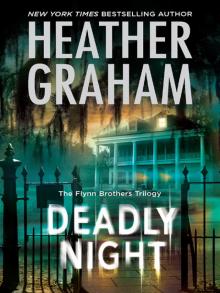 Deadly Night
Deadly Night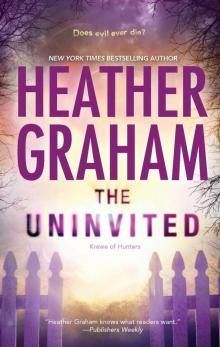 The Uninvited
The Uninvited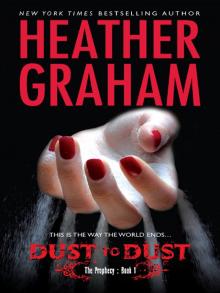 Dust to Dust
Dust to Dust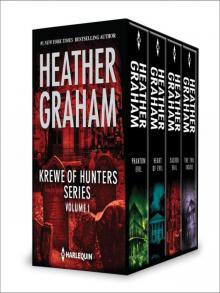 Heart of Evil
Heart of Evil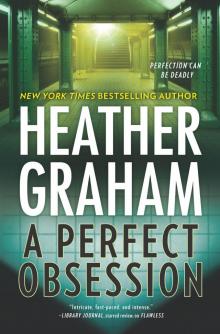 A Perfect Obsession
A Perfect Obsession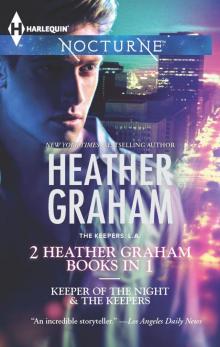 The Keepers
The Keepers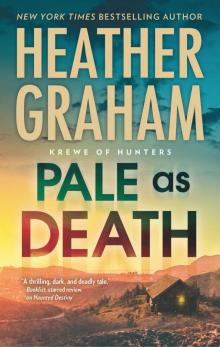 Pale as Death
Pale as Death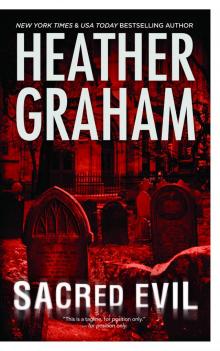 Phantom Evil
Phantom Evil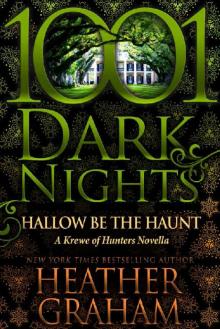 Hallow Be the Haunt
Hallow Be the Haunt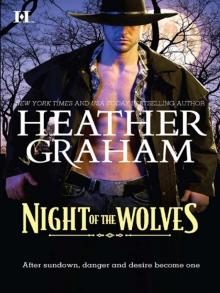 Night of the Wolves
Night of the Wolves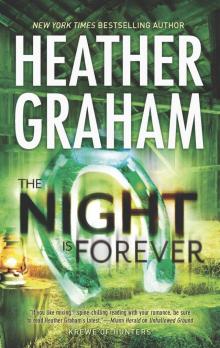 The Night Is Forever
The Night Is Forever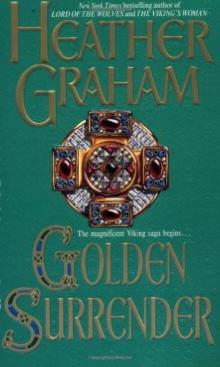 Golden Surrender
Golden Surrender Kiss of Darkness
Kiss of Darkness Beneath a Blood Red Moon
Beneath a Blood Red Moon A Dangerous Game
A Dangerous Game Ghost Shadow
Ghost Shadow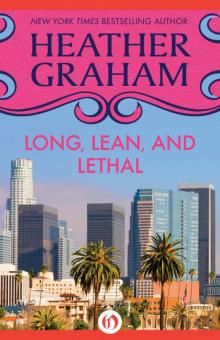 Long, Lean, and Lethal
Long, Lean, and Lethal Fade to Black
Fade to Black The Rising
The Rising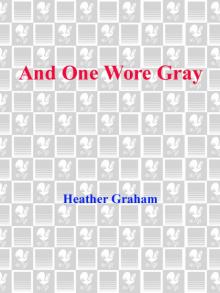 And One Wore Gray
And One Wore Gray Rebel
Rebel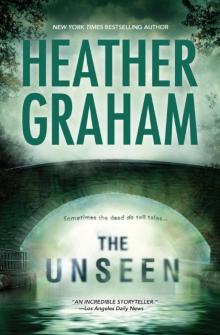 The Unseen
The Unseen The Night Is Watching
The Night Is Watching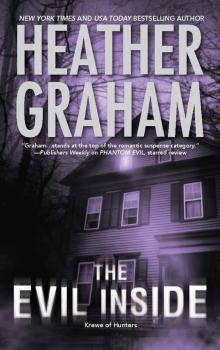 The Evil Inside
The Evil Inside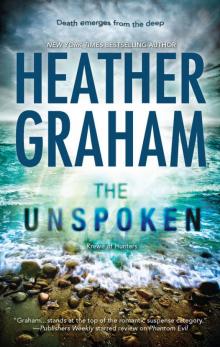 The Unspoken
The Unspoken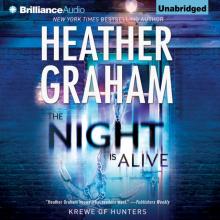 The Night Is Alive
The Night Is Alive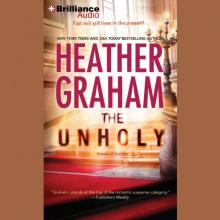 The Unholy
The Unholy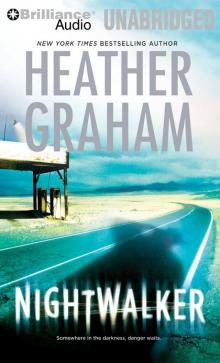 Nightwalker
Nightwalker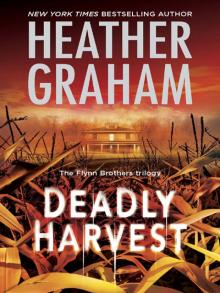 Deadly Harvest
Deadly Harvest An Angel for Christmas
An Angel for Christmas A Pirate's Pleasure
A Pirate's Pleasure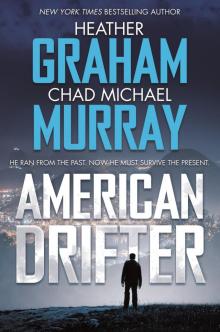 American Drifter
American Drifter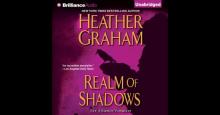 Realm of Shadows
Realm of Shadows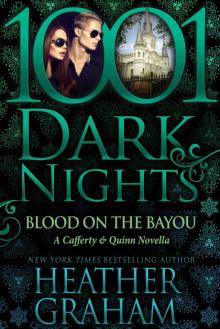 Blood on the Bayou
Blood on the Bayou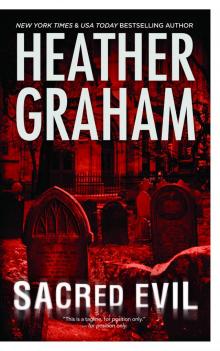 Sacred Evil
Sacred Evil Dying to Have Her
Dying to Have Her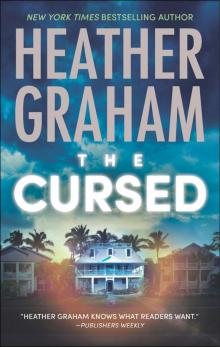 The Cursed
The Cursed Captive
Captive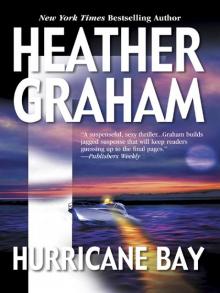 Hurricane Bay
Hurricane Bay Drop Dead Gorgeous
Drop Dead Gorgeous Ghost Memories
Ghost Memories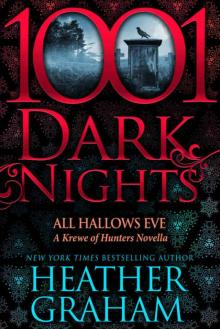 All Hallows Eve
All Hallows Eve Dying Breath
Dying Breath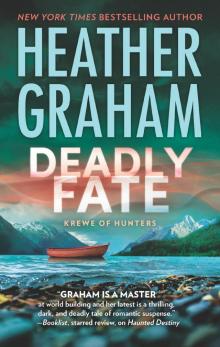 Deadly Fate
Deadly Fate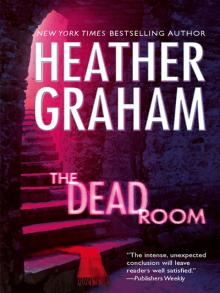 The Dead Room
The Dead Room Lord of the Wolves
Lord of the Wolves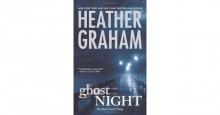 Ghost Night
Ghost Night Ghost Walk
Ghost Walk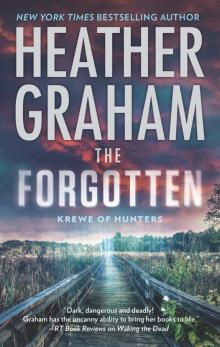 The Forgotten
The Forgotten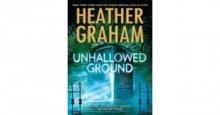 Unhallowed Ground
Unhallowed Ground One Wore Blue
One Wore Blue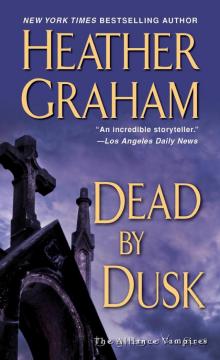 Dead By Dusk
Dead By Dusk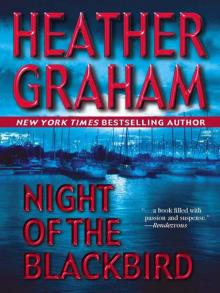 Night of the Blackbird
Night of the Blackbird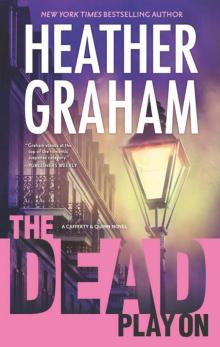 The Dead Play On
The Dead Play On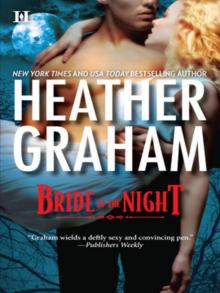 Bride of the Night
Bride of the Night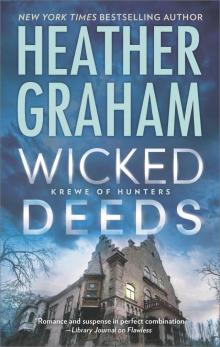 Wicked Deeds
Wicked Deeds The Forbidden
The Forbidden Triumph
Triumph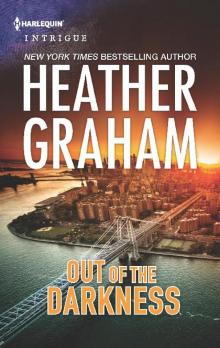 Out of the Darkness
Out of the Darkness Love Not a Rebel
Love Not a Rebel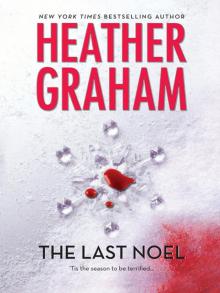 The Last Noel
The Last Noel Tall, Dark, and Deadly
Tall, Dark, and Deadly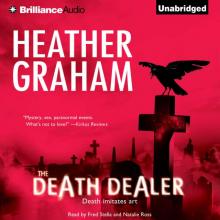 The Death Dealer
The Death Dealer Dead on the Dance Floor
Dead on the Dance Floor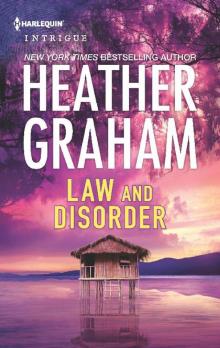 Law and Disorder
Law and Disorder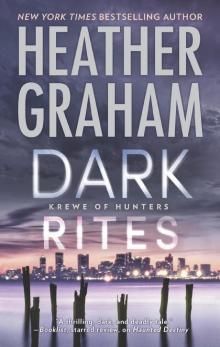 Dark Rites
Dark Rites New Year's Eve
New Year's Eve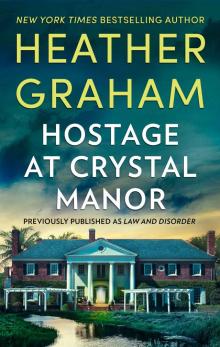 Hostage At Crystal Manor
Hostage At Crystal Manor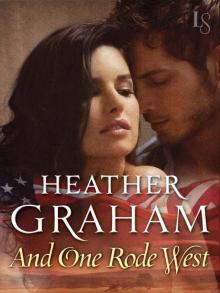 And One Rode West
And One Rode West Home in Time for Christmas
Home in Time for Christmas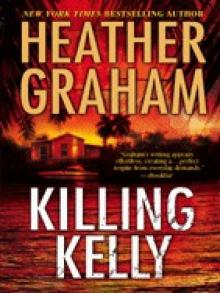 Killing Kelly
Killing Kelly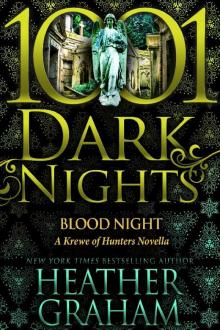 Blood Night
Blood Night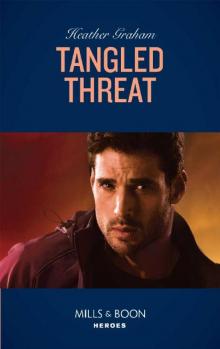 Tangled Threat (Mills & Boon Heroes)
Tangled Threat (Mills & Boon Heroes)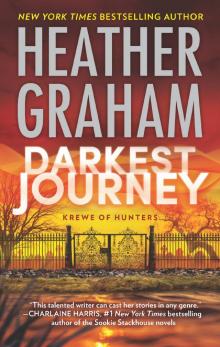 Darkest Journey
Darkest Journey Glory
Glory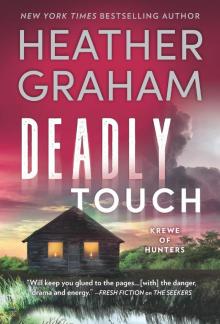 Deadly Touch
Deadly Touch An Unexpected Guest
An Unexpected Guest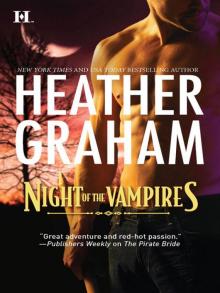 Night of the Vampires
Night of the Vampires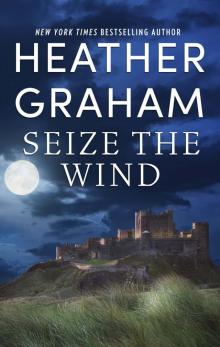 Seize the Wind
Seize the Wind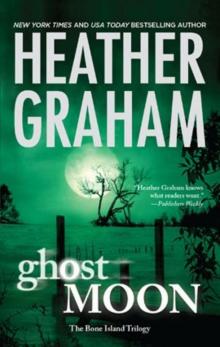 Ghost Moon
Ghost Moon The Vision
The Vision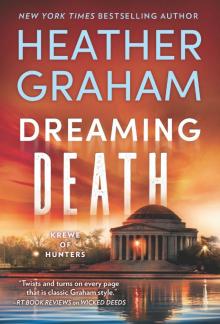 Dreaming Death
Dreaming Death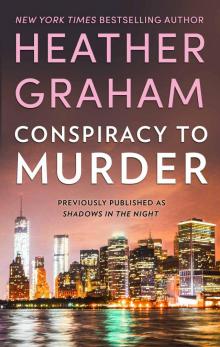 Conspiracy to Murder
Conspiracy to Murder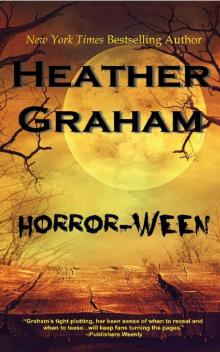 Horror-Ween (Krewe of Hunters)
Horror-Ween (Krewe of Hunters)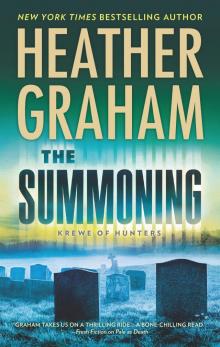 The Summoning
The Summoning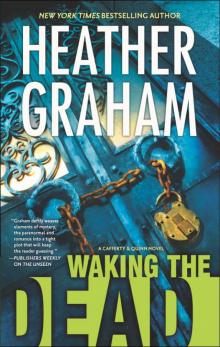 Waking the Dead
Waking the Dead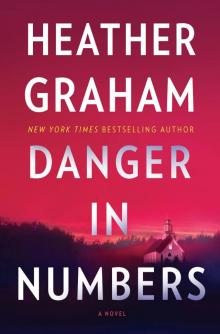 Danger in Numbers
Danger in Numbers The Hidden
The Hidden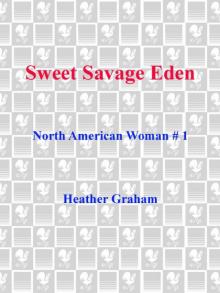 Sweet Savage Eden
Sweet Savage Eden Tangled Threat ; Suspicious
Tangled Threat ; Suspicious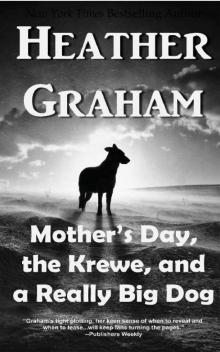 Mother's Day, the Krewe, and a Really Big Dog
Mother's Day, the Krewe, and a Really Big Dog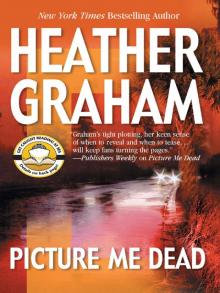 Picture Me Dead
Picture Me Dead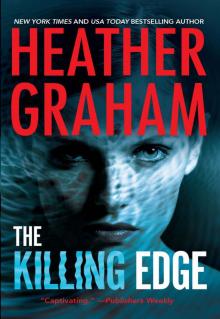 The Killing Edge
The Killing Edge St. Patrick's Day
St. Patrick's Day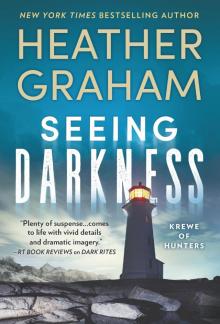 Seeing Darkness
Seeing Darkness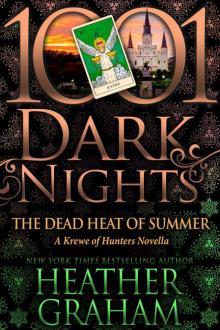 The Dead Heat of Summer: A Krewe of Hunters Novella
The Dead Heat of Summer: A Krewe of Hunters Novella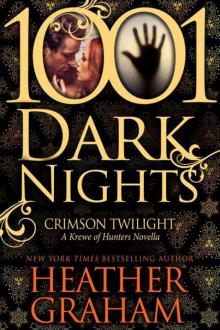 Crimson Twilight
Crimson Twilight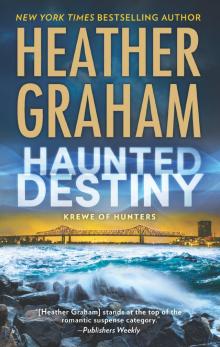 Haunted Destiny
Haunted Destiny Devil's Mistress
Devil's Mistress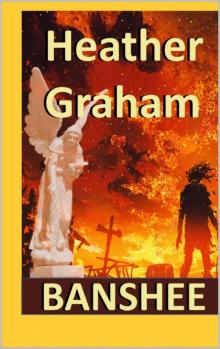 Banshee
Banshee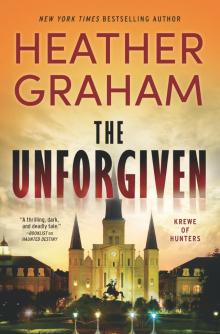 The Unforgiven
The Unforgiven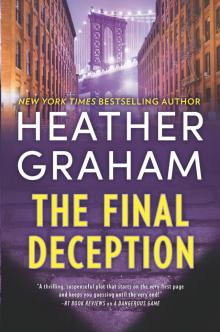 The Final Deception
The Final Deception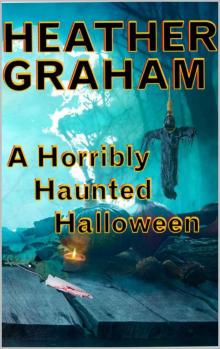 A Horribly Haunted Halloween
A Horribly Haunted Halloween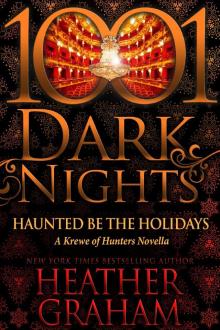 Haunted Be the Holidays
Haunted Be the Holidays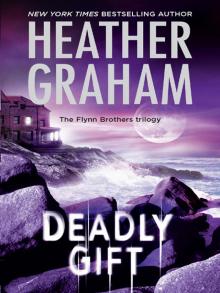 Deadly Gift
Deadly Gift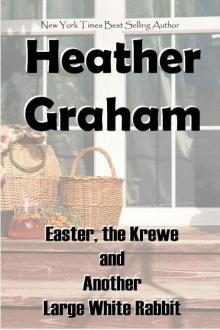 Easter, the Krewe and Another Large White Rabbit
Easter, the Krewe and Another Large White Rabbit Haunted
Haunted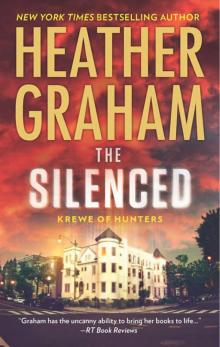 The Silenced
The Silenced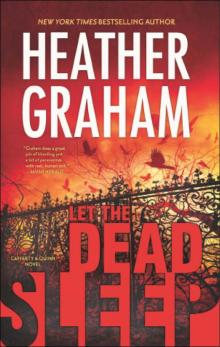 Let the Dead Sleep
Let the Dead Sleep Christmas, the Krewe, and Kenneth
Christmas, the Krewe, and Kenneth Big Easy Evil
Big Easy Evil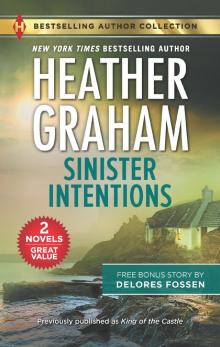 Sinister Intentions & Confiscated Conception
Sinister Intentions & Confiscated Conception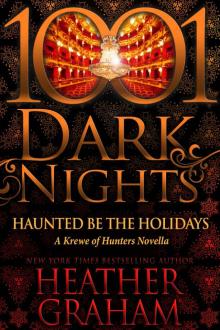 Haunted Be the Holidays: A Krewe of Hunters Novella
Haunted Be the Holidays: A Krewe of Hunters Novella Blood Red
Blood Red A Perilous Eden
A Perilous Eden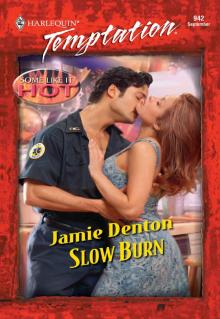 Slow Burn
Slow Burn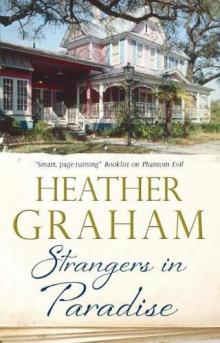 Strangers In Paradise
Strangers In Paradise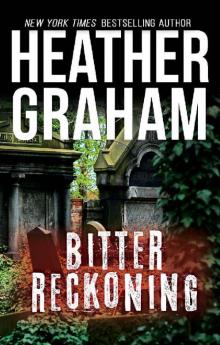 Bitter Reckoning
Bitter Reckoning Krewe of Hunters, Volume 1: Phantom Evil ; Heart of Evil ; Sacred Evil ; The Evil Inside
Krewe of Hunters, Volume 1: Phantom Evil ; Heart of Evil ; Sacred Evil ; The Evil Inside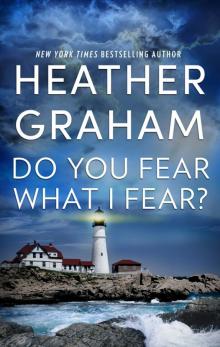 Do You Fear What I Fear?
Do You Fear What I Fear?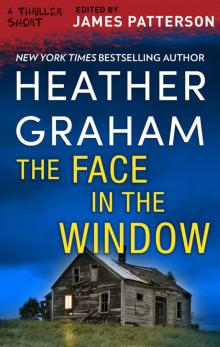 The Face in the Window
The Face in the Window Krewe of Hunters, Volume 3: The Night Is WatchingThe Night Is AliveThe Night Is Forever
Krewe of Hunters, Volume 3: The Night Is WatchingThe Night Is AliveThe Night Is Forever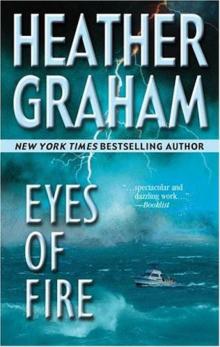 Eyes of Fire
Eyes of Fire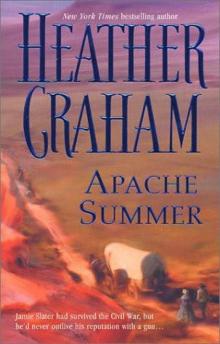 Apache Summer sb-3
Apache Summer sb-3 Sensuous Angel
Sensuous Angel In the Dark
In the Dark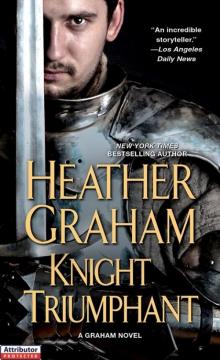 Knight Triumphant
Knight Triumphant Hours to Cherish
Hours to Cherish Tender Deception
Tender Deception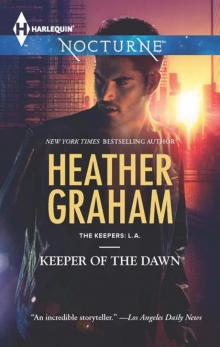 Keeper of the Dawn tkl-4
Keeper of the Dawn tkl-4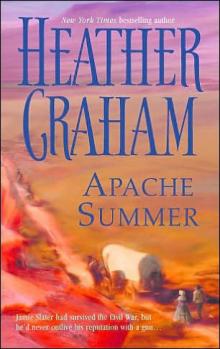 Apache Summer
Apache Summer Between Roc and a Hard Place
Between Roc and a Hard Place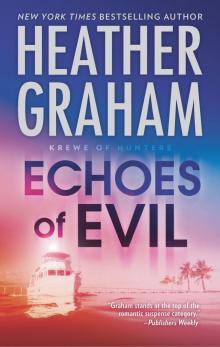 Echoes of Evil
Echoes of Evil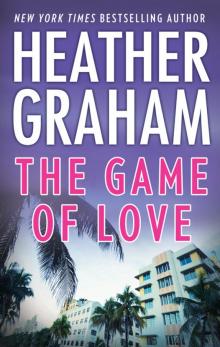 The Game of Love
The Game of Love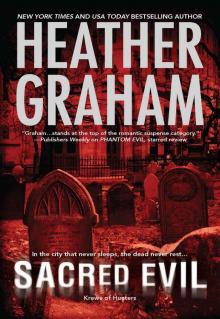 Sacred Evil (Krewe of Hunters)
Sacred Evil (Krewe of Hunters)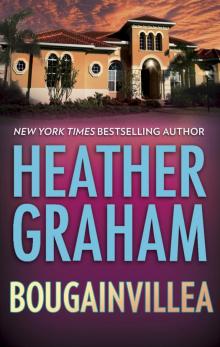 Bougainvillea
Bougainvillea Tender Taming
Tender Taming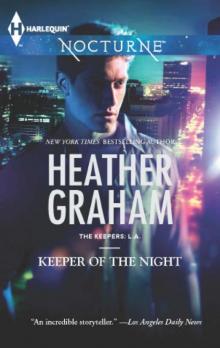 Keeper of the Night (The Keepers: L.A.)
Keeper of the Night (The Keepers: L.A.)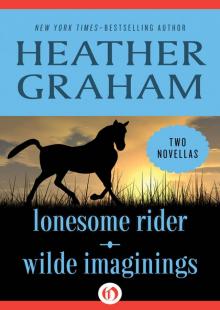 Lonesome Rider and Wilde Imaginings
Lonesome Rider and Wilde Imaginings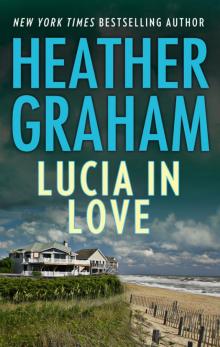 Lucia in Love
Lucia in Love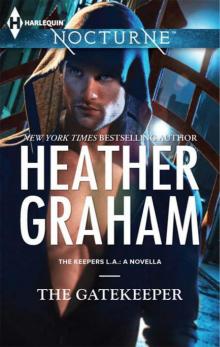 The Gatekeeper
The Gatekeeper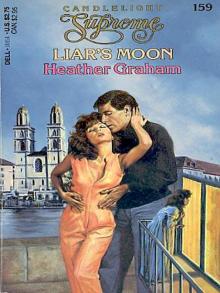 Liar's Moon
Liar's Moon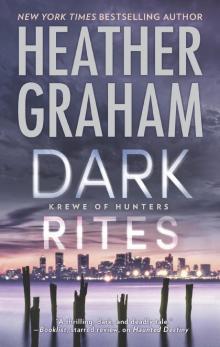 Dark Rites--A Paranormal Romance Novel
Dark Rites--A Paranormal Romance Novel A Season for Love
A Season for Love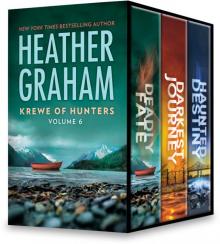 Krewe of Hunters, Volume 6: Haunted Destiny ; Deadly Fate ; Darkest Journey
Krewe of Hunters, Volume 6: Haunted Destiny ; Deadly Fate ; Darkest Journey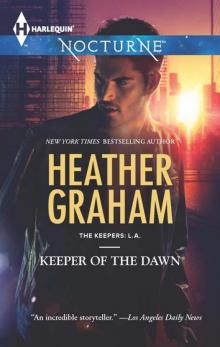 Keeper of the Dawn (The Keepers: L.A.)
Keeper of the Dawn (The Keepers: L.A.)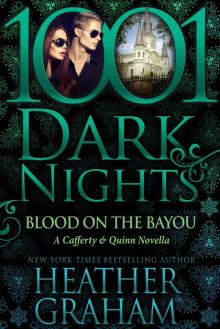 Blood on the Bayou: A Cafferty & Quinn Novella
Blood on the Bayou: A Cafferty & Quinn Novella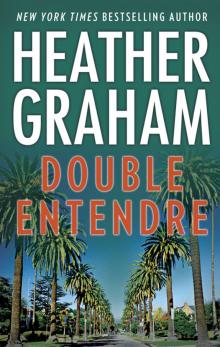 Double Entendre
Double Entendre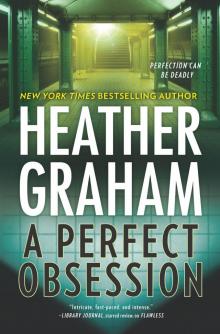 A Perfect Obsession--A Novel of Romantic Suspense
A Perfect Obsession--A Novel of Romantic Suspense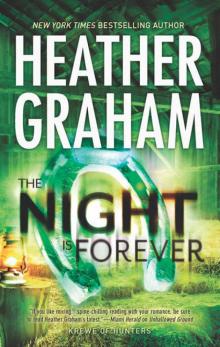 The Night Is Forever koh-11
The Night Is Forever koh-11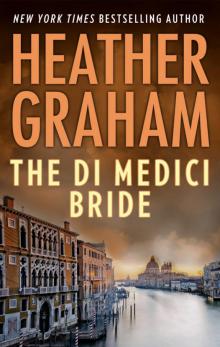 The Di Medici Bride
The Di Medici Bride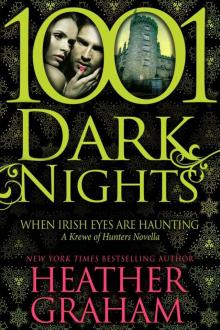 When Irish Eyes Are Haunting: A Krewe of Hunters Novella
When Irish Eyes Are Haunting: A Krewe of Hunters Novella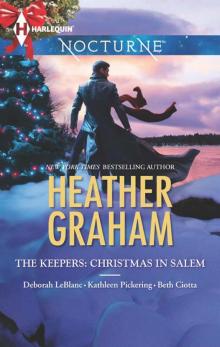 The Keepers: Christmas in Salem: Do You Fear What I Fear?The Fright Before ChristmasUnholy NightStalking in a Winter Wonderland (Harlequin Nocturne)
The Keepers: Christmas in Salem: Do You Fear What I Fear?The Fright Before ChristmasUnholy NightStalking in a Winter Wonderland (Harlequin Nocturne) Never Fear
Never Fear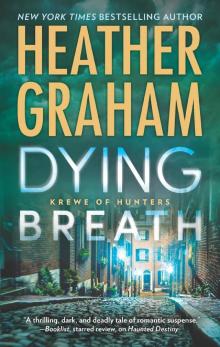 Dying Breath--A Heart-Stopping Novel of Paranormal Romantic Suspense
Dying Breath--A Heart-Stopping Novel of Paranormal Romantic Suspense If Looks Could Kill
If Looks Could Kill This Rough Magic
This Rough Magic Heather Graham's Christmas Treasures
Heather Graham's Christmas Treasures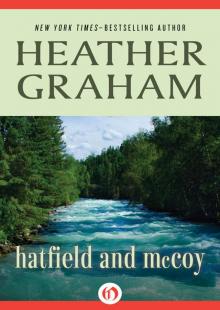 Hatfield and McCoy
Hatfield and McCoy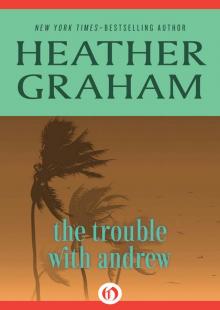 The Trouble with Andrew
The Trouble with Andrew Never Fear - The Tarot: Do You Really Want To Know?
Never Fear - The Tarot: Do You Really Want To Know?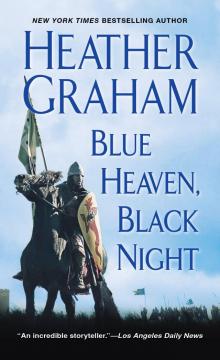 Blue Heaven, Black Night
Blue Heaven, Black Night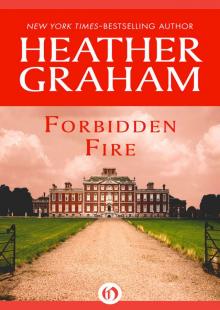 Forbidden Fire
Forbidden Fire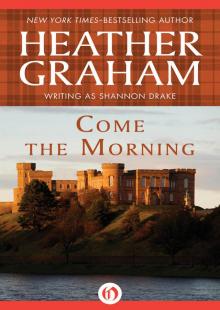 Come the Morning
Come the Morning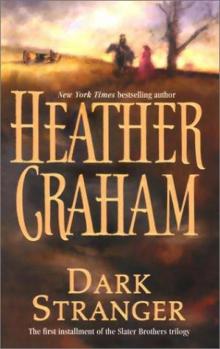 Dark Stranger sb-4
Dark Stranger sb-4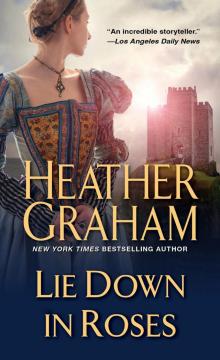 Lie Down in Roses
Lie Down in Roses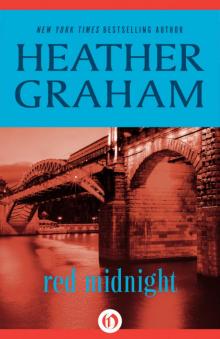 Red Midnight
Red Midnight Krewe of Hunters Series, Volume 5
Krewe of Hunters Series, Volume 5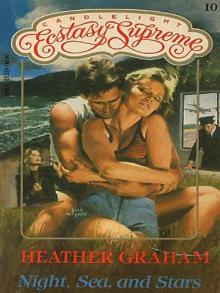 Night, Sea, And Stars
Night, Sea, And Stars Snowfire
Snowfire Quiet Walks the Tiger
Quiet Walks the Tiger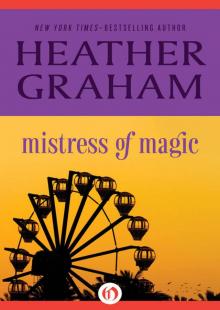 Mistress of Magic
Mistress of Magic For All of Her Life
For All of Her Life Runaway
Runaway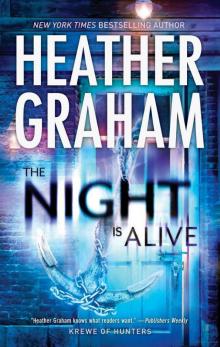 The Night Is Alive koh-10
The Night Is Alive koh-10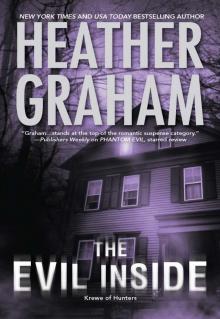 The Evil Inside (Krewe of Hunters)
The Evil Inside (Krewe of Hunters)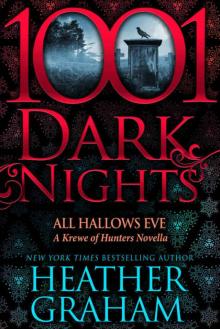 All Hallows Eve: A Krewe of Hunters Novella (1001 Dark Nights)
All Hallows Eve: A Krewe of Hunters Novella (1001 Dark Nights)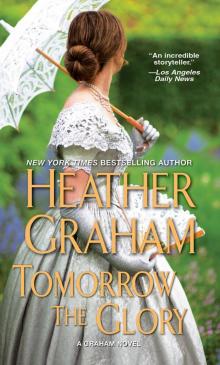 Tomorrow the Glory
Tomorrow the Glory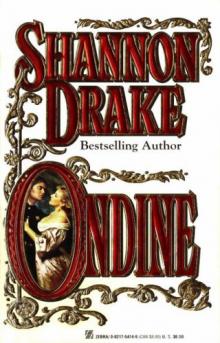 Ondine
Ondine Angel of Mercy & Standoff at Mustang Ridge
Angel of Mercy & Standoff at Mustang Ridge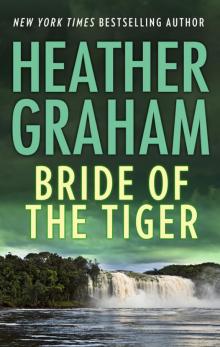 Bride of the Tiger
Bride of the Tiger When Next We Love
When Next We Love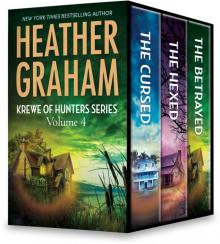 Heather Graham Krewe of Hunters Series, Volume 4
Heather Graham Krewe of Hunters Series, Volume 4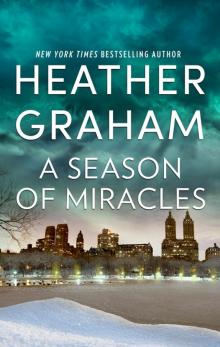 A Season of Miracles
A Season of Miracles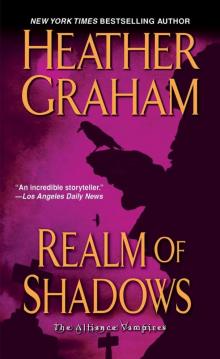 Realm of Shadows (Vampire Alliance)
Realm of Shadows (Vampire Alliance)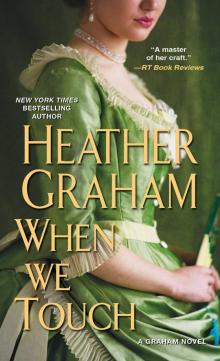 When We Touch
When We Touch Serena's Magic
Serena's Magic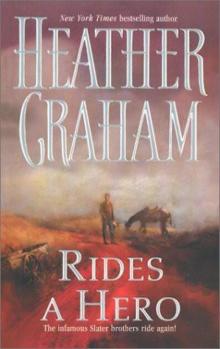 Rides a Hero sb-2
Rides a Hero sb-2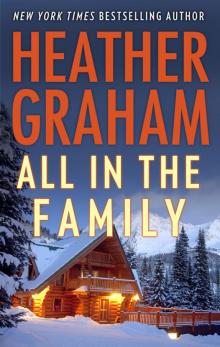 All in the Family
All in the Family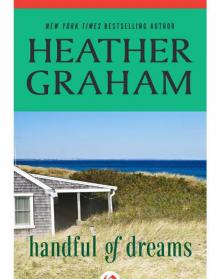 Handful of Dreams
Handful of Dreams A Stranger in the Hamptons
A Stranger in the Hamptons Krewe of Hunters, Volume 2: The Unseen ; The Unholy ; The Unspoken ; The Uninvited
Krewe of Hunters, Volume 2: The Unseen ; The Unholy ; The Unspoken ; The Uninvited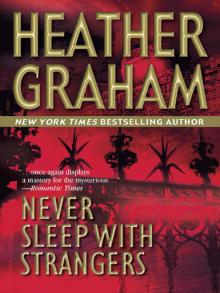 Never Sleep With Strangers
Never Sleep With Strangers Eden's Spell
Eden's Spell A Magical Christmas
A Magical Christmas Forever My Love
Forever My Love King of the Castle
King of the Castle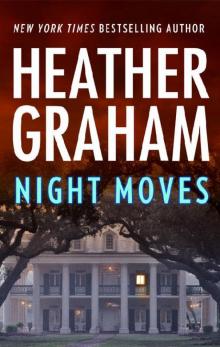 Night Moves (60th Anniversary)
Night Moves (60th Anniversary) The Island
The Island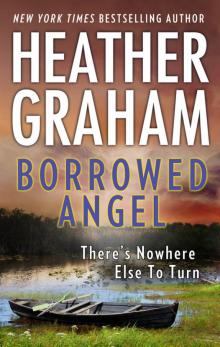 Borrowed Angel
Borrowed Angel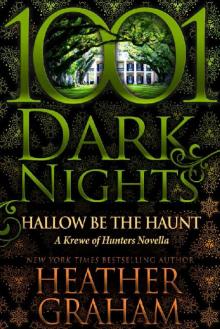 Hallow Be the Haunt: A Krewe of Hunters Novella
Hallow Be the Haunt: A Krewe of Hunters Novella Why I Love New Orleans
Why I Love New Orleans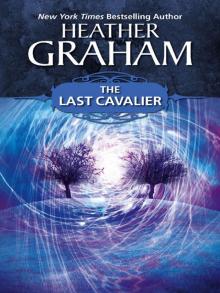 The Last Cavalier
The Last Cavalier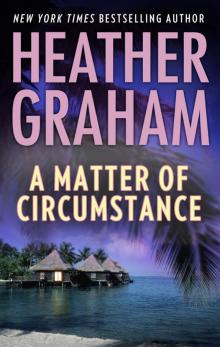 A Matter of Circumstance
A Matter of Circumstance Heather Graham's Haunted Treasures
Heather Graham's Haunted Treasures Tempestuous Eden
Tempestuous Eden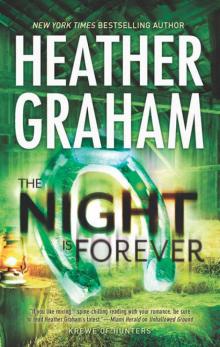 Krewe 11 - The Night Is Forever
Krewe 11 - The Night Is Forever